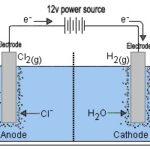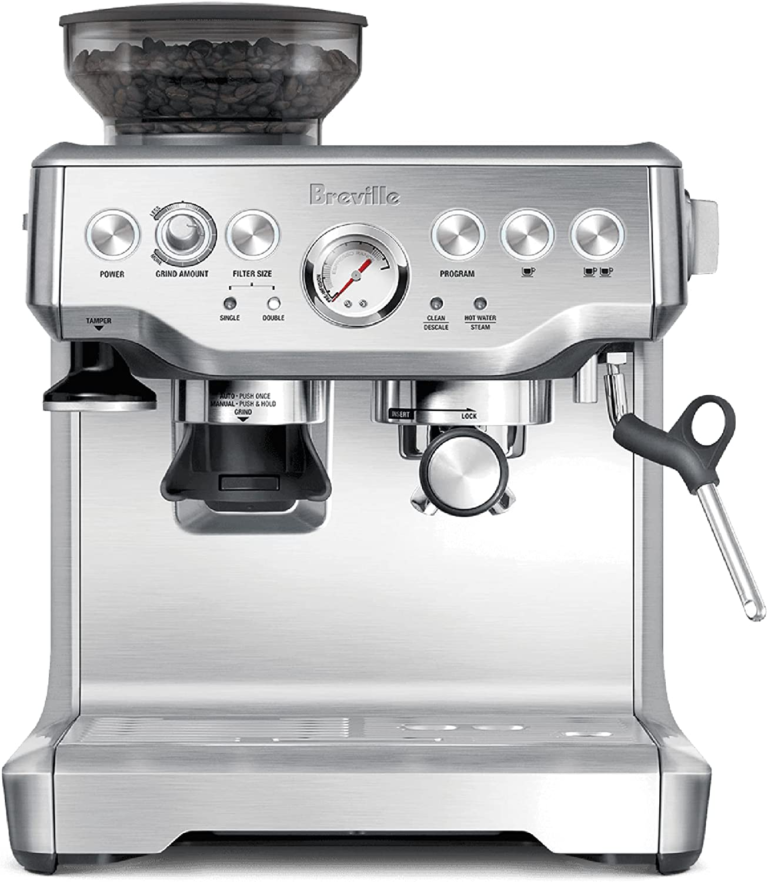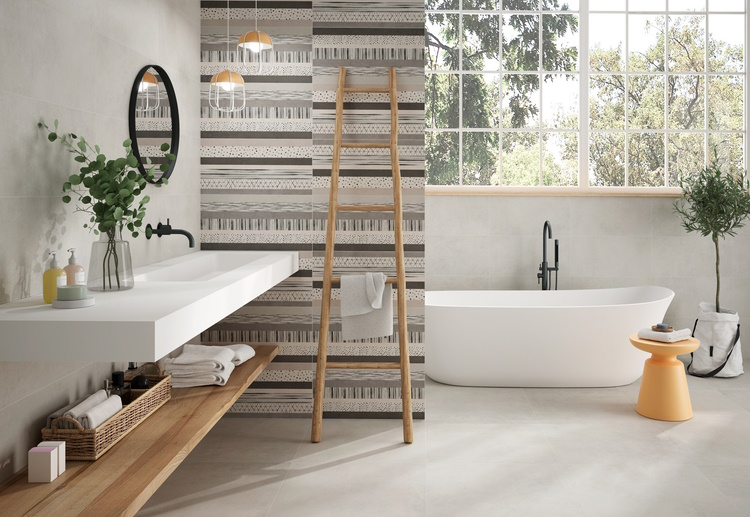Best Salt Water Pool System (2023)
The Ultimate Guide to Choosing and Maintaining the Best Salt Water Pool System
The Beauty of a Salt Water Pool System
 Have you ever dreamed of diving into crystal clear waters, surrounded by the serenity and luxury of your backyard? A salt water pool system might be the answer to your paradise-like oasis. A salt water pool uses a specialized chlorinator that converts salt into chlorine through electrolysis.
Have you ever dreamed of diving into crystal clear waters, surrounded by the serenity and luxury of your backyard? A salt water pool system might be the answer to your paradise-like oasis. A salt water pool uses a specialized chlorinator that converts salt into chlorine through electrolysis.
This process produces an endless supply of chlorinated water that keeps your pool clean and free from harmful bacteria. By eliminating the need for manual chlorine adjustments, these systems make maintenance a breeze while providing a more natural swimming experience. Jump to salt water system reviews.
Benefits of Using a Salt Water Pool System
The benefits of owning a salt water pool system are numerous and undeniable. For one, eliminating harsh chemicals (like traditional chlorine) makes for a more comfortable swim without needing goggles or nose plugs. Secondly, it reduces skin irritation caused by chemical reactions in conventional pools.
Saltwater systems are known to keep the pH levels in check, reducing the need for additional chemicals to balance them out. It also prevents algae growth and reduces overall maintenance costs because there is no need to purchase additional chemicals regularly.
Families with small children or pets should consider installing this system because it is safer due to lower chlorine levels than traditional pools. Why not dive into something new and try this trending salt water pool system option today?
How Salt Water Pool Systems Work
Explanation of the Electrolysis Process
 Salt water pool systems use the process of electrolysis to generate chlorine from salt. The system consists of a generator that contains two electrodes, one positively charged and one negatively charged.
Salt water pool systems use the process of electrolysis to generate chlorine from salt. The system consists of a generator that contains two electrodes, one positively charged and one negatively charged.
When salt water passes through the generator and comes into contact with these electrodes, an electrical current is created that causes a chemical reaction to occur. The positive electrode is made of titanium and coated with ruthenium oxide, while the negative electrode is made of titanium and coated with iridium oxide.
As chlorine gas is produced on the positively charged electrode, it combines with sodium ions in the water and forms hypochlorous acid, which acts as a sanitizer for the pool. This process continues until all available salt has been converted into chlorine.
Comparison to Traditional Chlorine Pools
Traditionally, pools are sanitized using chlorine tablets or granules added directly to the water. While this method works well for keeping pools clean, it can also lead to skin irritation, eye irritation, and an unpleasant odor. In contrast, salt water pool systems provide a more natural form of sanitation by generating chlorine on-site from salt instead of relying on harsh chemicals.
This reduces chemical exposure for swimmers, and less maintenance is required for pool owners. Additionally, because salt water pool systems generate their own chlorine continuously rather than requiring manual additions like traditional pools do, they can lead to more consistent levels of sanitation throughout the pool at all times.
Choosing the Best Salt Water Pool System
Factors to consider when selecting a system
When selecting a salt water pool system, there are several factors that you should consider. The first and most important factor is the size of your pool. The size of your pool will determine how large of a system you need.
You should also consider your pool type, as some systems are designed specifically for in-ground pools. In contrast, others are designed for above-ground pools. Another essential factor to consider is the level of automation you want in your system.
Some systems have advanced automation features that allow you to control your pool’s chemicals and temperature from your smartphone or tablet. These systems are more expensive but can save time and simplify maintenance.
You should also consider the warranty and customer service offered by different brands. Look for brands with a good reputation for standing behind their products and delivering excellent customer service.
Reviews of top brands and models
When it comes to selecting the best salt water pool system, there are many great options available. Here are some of the top-rated salt water pool systems:
– Hayward Aquarite: This popular brand offers several different models designed for various sizes of pools. Known for their reliability and ease of use.
No products found.
– Pentair IntelliChlor: This high-end brand offers advanced automation features, including remote control capabilities through their mobile app. They’re built to last and come with an impressive warranty.
– CircuPool SJ-Series: This mid-range brand offers good value for money without sacrificing quality or performance. Easy to install and come with an extended warranty.
– Zodiac Clearwater: Another highly-rated brand, Zodiac offers several models to suit different-sized pools and budget ranges. They’re known for their efficiency in converting salt into chlorine, meaning fewer chemicals are needed overall.
– Intex Krystal Clear Sand Filter Pump & Salt Water System for Above Ground Pools: Designed for use with above ground pools from 4,800 to 15,000 gallon capacity.
No products found.
Ultimately, your best saltwater pool system will depend on your needs and preferences. Do your research, read reviews, and consider all the factors discussed in this article before making your final decision.
Installation and Maintenance
Steps for Installing a Salt Water Pool System
Installing a salt water pool system is not as complicated as it may seem. However, following the manufacturer’s instructions closely is essential and ensuring that a licensed electrician makes all electrical connections. Here are the basic steps for installing a salt water pool system:
- Choose the right location – The first step in installing your system is to choose the right location for your cell and control box. It’s recommended that you install them in an area where they will be protected from direct sunlight.
- Install the Cell – Once you have chosen the right location, install your cell into your pool plumbing line.
- Connect Power Supply – After you’ve installed your cell, connect it to its power supply.
- Set Salt Level – Add enough pool salt to reach the recommended level of 3200 ppm (parts per million), usually around 50 pounds per 2000 gallons of water.
- Turn on System– Finally, turn on your salt water pool system and let it run for at least 24 hours before testing the water chemistry.
Tips for Maintaining Your Salt Water Pool System
Maintaining a saltwater pool system is relatively simple but requires a commitment to ensure it functions correctly over time. The maintenance tasks and potential for equipment repairs are as follows:
- Hose down the pool area: Since salt water can be corrosive, it’s essential to hose down the pool area, including the pump, filter, and skimmer, once a week to prevent wear and tear on your patio or pool deck.
- Test pH levels weekly: A well-balanced pool will have a pH between 7.2 and 7.6. Regularly testing and adjusting the pH levels will help maintain a healthy swimming environment and protect the pool equipment.
- Clean the salt cell: The salt cell should be cleaned regularly. At least every three months. To clean it, you can use five parts of clean water to one part of muriatic acid, letting it foam for about ten minutes before pouring the solution back into the bucket.
- Monitor salt levels: Ensure that the salt levels in your pool are within the recommended range of 2800-3500 ppm for optimal performance. If the levels are too high, you can dilute your pool water by draining some out and adding fresh water. Alternatively, you can use a flocculant like Aqua Chem Sink and Sweep Flocculent to settle debris to the bottom of the pool for easy vacuuming.
- Regular equipment checks and repairs: Like any pool system, the equipment in a saltwater pool may eventually require repairs. It’s essential to address any issues promptly to ensure the system continues to function correctly. Regularly inspecting the pump, filter, and chlorinator for signs of wear or damage can help catch problems early and avoid more costly repairs.
Follow these maintenance tips and enjoy a clean, refreshing pool all season long while minimizing the need for equipment repairs. Remember that the level of commitment required to maintain a salt water pool system is generally lower than that of a traditional chlorine pool, making it an attractive option for many homeowners.
Cost Comparison
Comparison of initial installation costs to traditional chlorine pools
One of the main concerns people have when considering a salt water pool system is the cost. Initially, a salt water pool system may seem more expensive than a traditional chlorine pool. The cost of the equipment and installation can be higher because it involves more advanced technology.
Best Time To Shock Your Pool For Summer Fun (wherecanibuythat.us)
However, a salt water pool system can save you money in the long run. With traditional chlorine pools, you must constantly purchase and add chlorine to maintain proper chemical balance.
This can add up over time and become quite costly. Additionally, the harsh chemicals in traditional pools can cause damage to your skin, hair, and clothing.
On the other hand, with a salt water pool system, you only need to add bags of salt periodically to maintain proper chemical balance. While this investment may seem steep initially, it pays off in long-term savings.
Long-term cost savings
In addition to lower maintenance costs over time with a salt water pool system, long-term savings are associated with energy efficiency. Saltwater systems use less energy than traditional chlorine systems because they do not require as much electricity for filtration or pumping. Furthermore, saltwater systems require less maintenance than conventional chlorine systems due to their self-cleaning properties.
This means that you will spend less on repairs and replacements over time. Overall, while there may be an initial expense associated with installing a salt water pool system compared to a traditional chlorine pool system, this investment will pay off in terms of long-term cost savings both financially and environmentally.
Common Misconceptions about Salt Water Pools
Addressing common myths about salt water pools
Several misconceptions about salt water pool systems have been circulating for years. Some people believe salt water pools are like swimming in the ocean and may even cause salty tears and skin irritation. Salt water pool systems require constant maintenance and monitoring to ensure proper functionality.
These myths can be debunked with a few simple facts. Firstly, while it’s true that saltwater is used to sanitize a pool instead of traditional chlorine, the amount of salt in a salt water pool is vastly different than the ocean.
In fact, the salt concentration in a typical swimming pool is only around 3,000 parts per million (ppm), compared to the ocean’s salinity level of about 35,000 ppm. This makes for a much more comfortable swimming experience without adverse eye or skin effects.
Secondly, while all swimming pools require maintenance and upkeep, this can be a smooth process with a properly installed and maintained saltwater system. In fact, once correctly balanced during initial setup by an expert technician like our team at [company name], keeping your system can be as simple as checking pH levels periodically and adding small amounts of chlorine occasionally.
Clarifying misconceptions about maintenance and upkeep
Despite what some believe, maintaining a salt water pool requires less work than traditional chlorine pools. This is because the electrolysis process continuously creates chlorine within the system rather than requiring you to handle heavy buckets of chemicals every week or so.
However, it’s important to note that proper maintenance will still be required for optimal function over time – especially when balancing the pH levels within your pool’s chemical composition. We recommend hiring professionals to help with initial installation and check-ins throughout the year to maintain a healthy balance.
Salt water pool systems have come a long way in recent years. They are now more efficient, cost-effective, and enjoyable than traditional chlorine pools. By debunking these common myths about maintenance and upkeep, we hope you’re encouraged to explore whether a salt water pool system is the right choice for your home.
Conclusion: Enjoy the Benefits of Salt Water Pools
After considering the benefits and advantages of using a salt water pool system, it’s clear that this type of pool is a smart choice for many homeowners. Not only do salt water pools offer a more natural swimming experience, but they also provide cost savings in the long run. Proper installation and maintenance allow you to enjoy crystal-clear water without the harsh chemicals in traditional chlorine pools.
One significant benefit of salt water pools is reducing skin and eye irritation. Unlike traditional chlorine pools, which can cause redness, dryness, and itching to sensitive skin or eyes, saltwater systems are gentler on your body.
You’ll also notice less damage to your swimsuits or pool floats as there are no harsh chemicals to break down the fabric. Another advantage of salt water pools is their low maintenance requirements compared to traditional chlorine systems.
The electrolysis process continuously creates chlorine from the salt in your pool water, meaning you won’twon’t have to add any additional chemicals regularly. This also makes monitoring your pool chemistry levels easier with minimal testing required.
Switching to a saltwater system can save you money over time. Since you won’t need to purchase as many chemicals or hire professionals for upkeep as often as with traditional chlorine pools, there’s potential for substantial cost savings down the line.
Plus, since salt doesn’t evaporate as chlorine does, you won’t need to replenish it as often. If you’re looking for a more natural swimming experience with fewer harsh chemicals and low maintenance costs over time, consider switching to a salt water pool system today!
Last update on 2025-04-08 / Affiliate links / Images from Amazon Product Advertising API



















One Comment